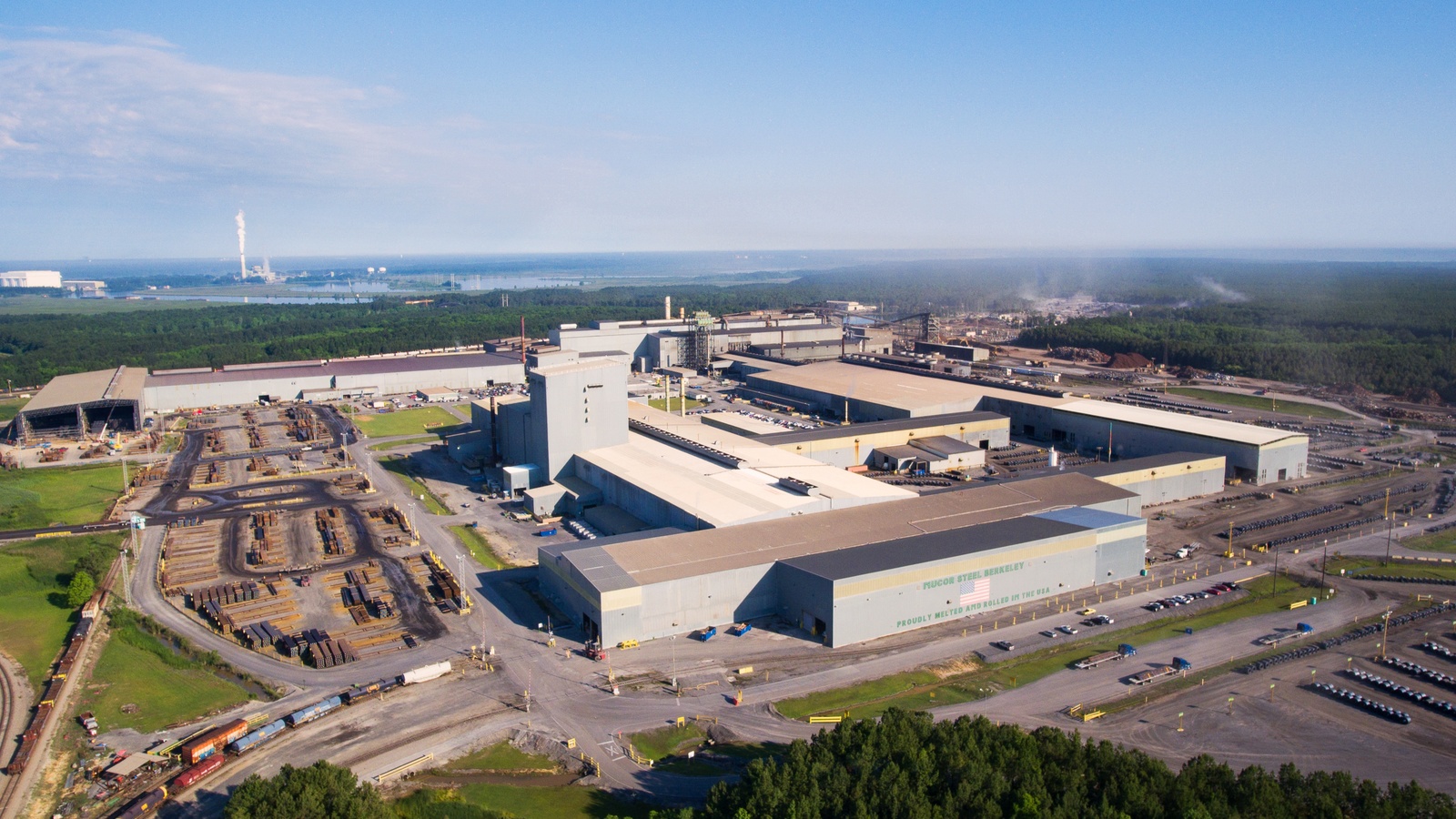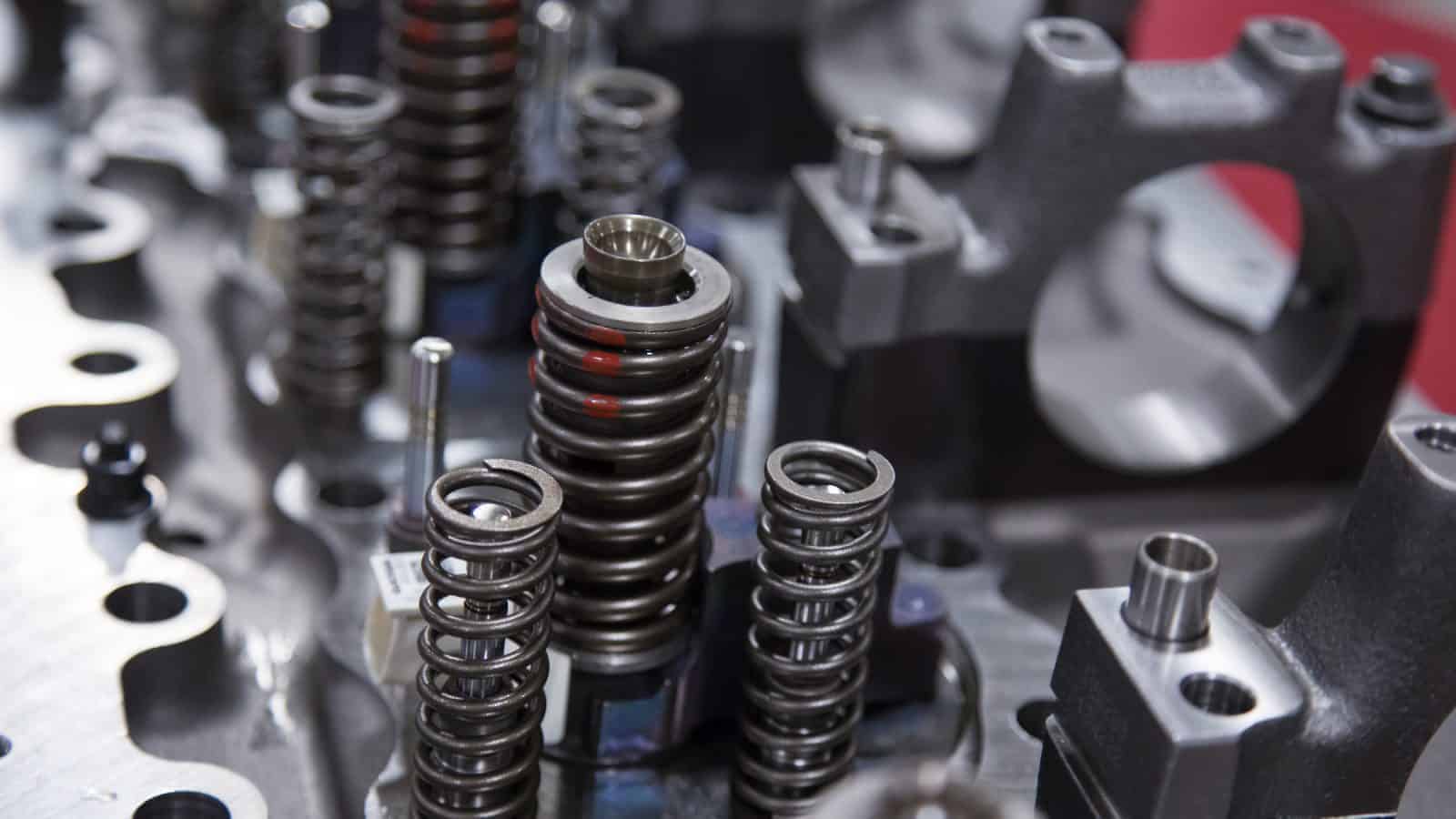“A Catalyst for Change”: Nucor Is All in on Sustainability

Nucor is one of the cleanest steel companies in the world. Recently, the producer of low embodied carbon steel and steel products committed to further reducing emissions and increasing its global sustainability efforts by joining the United Nations’ 24/7 Carbon-free Energy Compact.
But that’s just the latest in a long list of sustainability initiatives from the company.
Lofty goals: Nucor has committed to a 35% reduction of its steel-mill greenhouse-gas intensity by 2030—no easy feat in the sector, said Nucor Executive Vice President of Business Services and General Counsel Greg Murphy.
- “The levers that companies in this industry can pull depends on the geographic location you’re in, your access to materials and even the geology of the region in which you operate,” Murphy said. “We’re making steel out of recycled content and the fact that we start out with some of the lowest industry greenhouse-gas emissions levels on the planet gives us an advantage.”
- Much of this advantage comes from the company’s use of electric arc furnaces to recycle scrap metal into new steel products, a process Nucor pioneered in the U.S.
- However, EAFs consume large amounts of electricity, making cleaner energy sources an important part of the company’s efforts to reduce emissions. Approximately 40% of the electricity Nucor uses now comes from clean or renewable sources, according to Murphy.
Green upgrades: Nucor is looking at all corners of its operations for ways to reduce and improve.
- The company is building a new rebar “micromill” (its third in the past five years) to make rebar for infrastructure and construction projects. Micromills eliminate the need for reheat furnaces, further reducing Nucor’s use of natural gas.
- Nucor is also considering replacing charge and injection carbon—two solid-carbon sources used in its furnaces—“with recycled and wood components, which would significantly reduce emissions,” Murphy said.
- In addition, the steel manufacturer is investing in ways to extract nonferrous materials, such as copper, from obsolete scrap. More reuse means a smaller carbon footprint, according to Murphy.
- Finally, the company is exploring the use of carbon capture and sequestration at one of its facilities and is investing in alternative iron-making technologies that would enable it to produce carbon-free, high-quality iron.
Bringing in nuclear: Nucor takes an all-of-the-above approach to energy, which is what will allow it to fulfill the goals of the U.N. compact, according to Murphy.
- “A fundamental premise of [the compact] is that access to affordable, clean energy is essential to the world’s sustainable future,” Murphy said. “That’s one of the things that really attracted us to it—this emphasis on not just providing renewable energy, but providing affordable, reliable and clean energy. That’s not only solar and wind, but also geothermal, hydroelectric and, critically, nuclear. We think that all of these forms of clean energy have a role to play.”
- Last year, Nucor invested in NuScale Power, a company developing small modular nuclear reactors. The U.S. Nuclear Regulatory Commission recently approved the design and the first operational reactor is expected by the end of this decade.
The final word: “At the end of the day, the sustainability issue is not going to go away,” Murphy said. “It’s here to stay, and I think companies can either move in this direction kicking and dragging their feet, or they can do it with leadership. The developed world needs to lead the developing world. We need to be a catalyst for change.”
